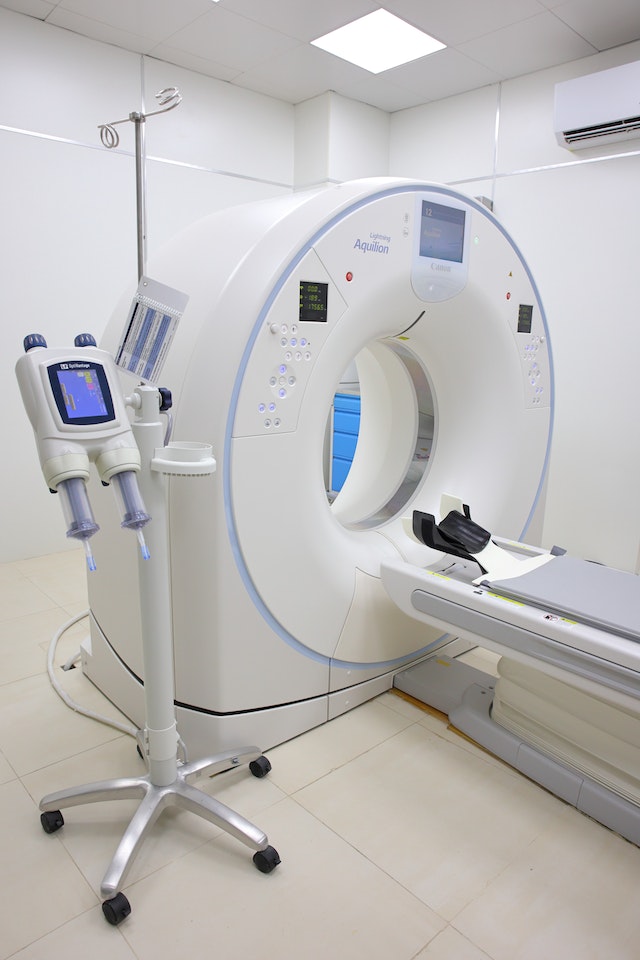Magnetic resonance imaging (MRI) has become an increasingly important medical diagnosis and treatment tool. As a result, the demand for MRI technicians, also known as magnetic resonance imaging technologists, has steadily increased. If you're considering a career in healthcare and have an interest in technology and diagnostic imaging, becoming an MRI tech may be the perfect fit for you.
In this article, we will explore the job outlook of MRI technicians in 2023 and beyond. We'll discuss the qualifications needed, including education requirements, certification options, and necessary skills. Whether you're just starting out or looking to make a career change, this guide will provide valuable insights on how to pursue a successful career as an MRI technician.

Why the Demand for MRI Technicians Continues to Grow
Medical imaging has revolutionized how healthcare professionals diagnose and treat various medical conditions. One of modern medicine’s most powerful diagnostic tools is magnetic resonance imaging (MRI). MRI technicians are professionals who operate these machines to produce detailed images of the inside of a patient's body. They play a crucial role in helping physicians make accurate diagnoses and provide effective treatment plans.
MRI technicians work in hospitals, clinics, and imaging centers, where they perform scans on patients using MRI technology. These scans allow doctors to see inside the body without invasive procedures or surgery. The images produced by an MRI can reveal various types of illnesses, such as cancerous tumors, heart disease, neurological disorders, and injuries to bones or soft tissues.
Aside from performing scans, some of the other duties carried out by MRI technologists include interviewing and screening patients, monitoring and maintaining MRI scanners, and preparing patients for image scans. This involves proper positioning, speaking reassuringly to patients, and at times sedation.
Skills & Traits of a Successful MRI Tech
To excel in this field, one must possess a combination of technical skills and personal traits.
First, an MRI tech must thoroughly understand anatomy as they need to interpret complex medical images accurately.

Technical ability is crucial for any successful MRI technician. They must have a strong understanding of how different types of equipment work and how to operate them safely and effectively. This requires a combination of theoretical knowledge and practical experience, which can be gained through specialized training programs or on-the-job experience.
Also, attention to detail is another essential trait for an MRI tech. They must be able to accurately interpret images and identify abnormalities or anything that may require further investigation by physicians.
Apart from technical skills, an MRI tech should also be compassionate and have excellent patient care abilities. As most patients receiving MRI scans may be anxious or claustrophobic during the procedure, it is vital for the technologist to ensure that they remain calm and comfortable throughout the process. A successful MRI technologist should have good communication skills with patients and other healthcare professionals. They must be able to convey complex information about imaging procedures effectively while ensuring confidentiality is maintained at all times.
How to Become an MRI Technologist
If you're interested in pursuing a career as an MRI technologist, there are several steps you'll need to take. First, you'll need to obtain an associate degree in radiologic technology or a related field from an accredited institution. This typically takes two years to complete and will provide you with the basic knowledge and skills needed for this profession.
After earning your degree, you will need to complete an MRI training program. MRI tech programs may be offered at vocational schools, community colleges, or universities. Some positions, such as MRI specialist, radiologic department manager, or chief radiologic technologist,, require a bachelor's degree.
Licensing and Certifications
Once you've completed your training, it's time to become MRI certified. This requires passing the certification exam administered by the American Registry of Radiologic Technologists (ARRT). You also must complete at least 16 hours of structured education in MRI before taking the exam. Once you pass the exam, you'll be officially recognized as an MR technologist and can start looking for jobs in this field.

Salary and Career Outlook for MRI Techs
The magnetic resonance imaging (MRI) field has seen a steady increase in demand. As such, the salary and career outlook for MRI techs are favorable. According to the Bureau of Labor Statistics, the average annual salary for an MRI technologist is $73,410. This figure is above the national average for all occupations.
Many Opportunities for Radiologic and MRI Technologists
In addition to a competitive salary, there are several reasons why pursuing a career as an MRI technologist can be rewarding.
For one, this profession allows individuals to work in a highly specialized field requiring technical expertise and human anatomy knowledge. Moreover, MRIs are increasingly being used as diagnostic tools in many medical settings, so there will be ample job opportunities available to those with the necessary training and education.
Also, there is plenty of room for MRI techs to advance, as they can become a chief radiologic technologist, a supervisor, or director of the department. A master’s in health administration will assist in attaining supervisory positions.